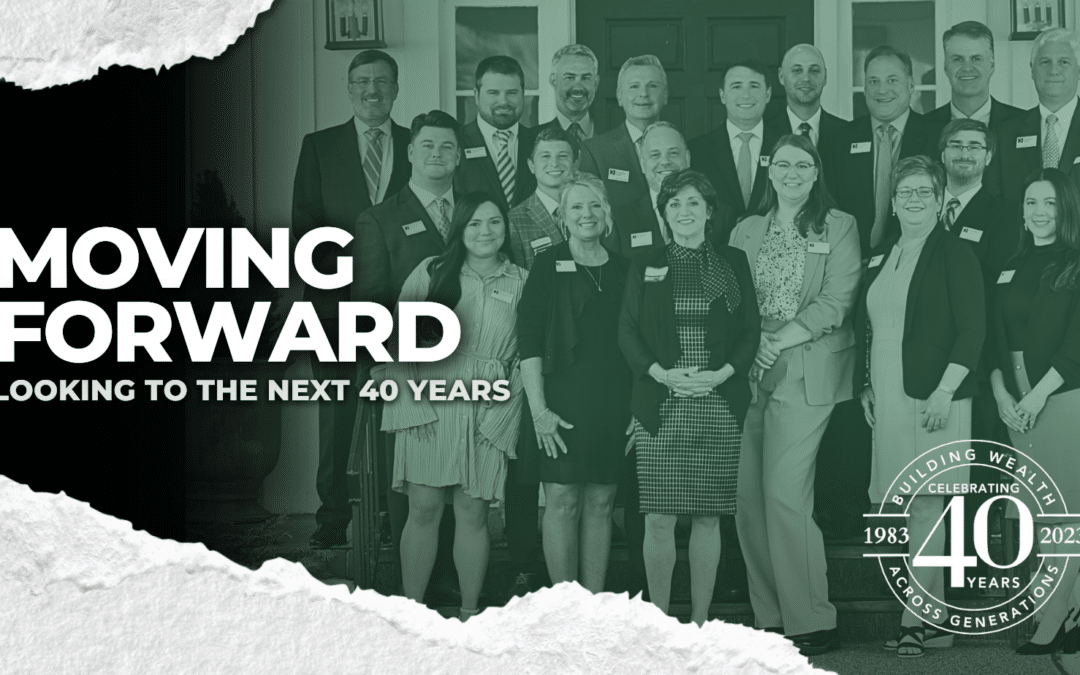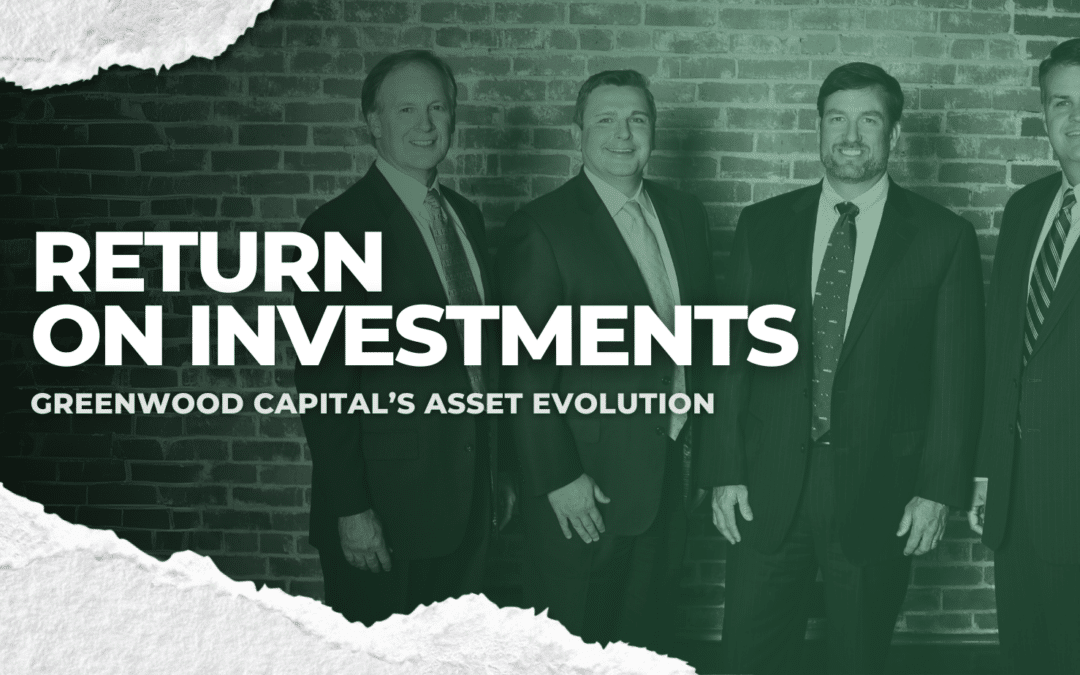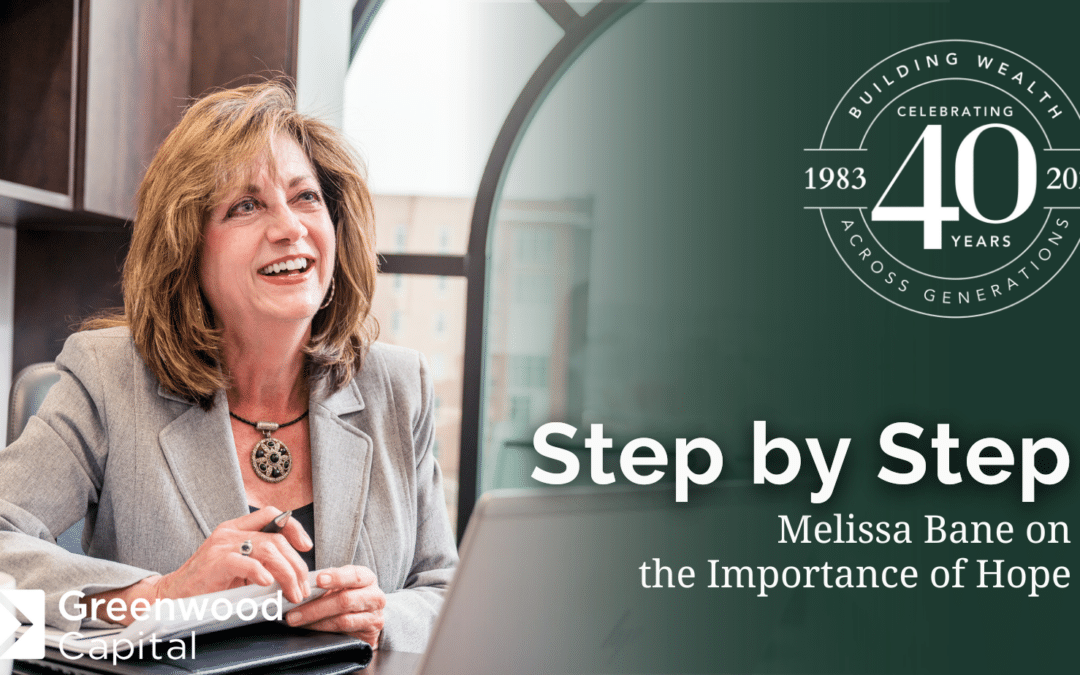When talking to John Cooper, it doesn’t take long to realize he loves his hometown of Greenwood, South Carolina. He has his opinions on the best burger in town (The Dixie Drive-In) and he fondly reminisces on what Main Street looked like in the ‘70s. He knows the area’s history and has his own stories to add. (My personal favorite: did you know that scenes from the 1991 psychological thriller “Sleeping with the Enemy” were filmed on-location nearby in Abbeville? Aside from starring Julia Roberts, it is also John’s film debut as an extra. An eagle-eyed viewer can spot him as the postman in an early scene.)
Being able to stay involved in his community has always been a prerequisite for John. He made this clear in his first job interview at Greenwood Capital.
“If you’re looking for someone who will move outside of Greenwood, I’m not your guy. But if you’re looking for someone who has Greenwood roots and is going to stay here, then you’re talking to the right person.”

John has been involved with non-profit initiatives and local charities for decades. He is on the boards for the Self Regional Healthcare Foundation and United Way of the Lakelands. He is involved with the South Carolina Financial Planning Association where he heads up the Community Involvement group, to provide pro-bono financial education to the public.
He also started the Greenwood School District fishing team after his own son showed interest in competing. While John has no interest in fishing himself, he has been coaching kids long enough to see them go on to earn scholarships and compete collegiately.
It is no surprise that John’s career centers around helping others. As a financial advisor, John offers expert guidance and support to families and individuals. He provides comprehensive wealth management services such as portfolio allocation, insurance analysis, and retirement planning.
“While a down market has some impact on
[my client’s] ability to achieve those goals, it is much less than they may have thought in their head.“
After helping his clients identify their goals, John will put together a comprehensive financial plan. This plan is tailored to each client’s investment suitability, risk tolerance, time frame, and personality. It serves as a map to help clients reach their goals: to lower taxes, preserve and protect assets, create a qualified retirement plan, or leave a legacy behind.
Financial planning is not a one-and-done process. For John, this means reviewing his client’s plans at least annually. He finds a financial plan is a remarkable resource during down markets or other periods of financial uncertainty. When his clients come to him with concerns or fears, he takes the time to walk them through the possible outcomes.
“I immediately go back to the list and analyze their goals to see if those have changed in some way. If they haven’t, then let’s look at the financial plan and run it through the model that we used when we created their plan and see what this down market has done to their ability to achieve those goals.
I’ve done that multiple times in the past and it invariably puts the client’s mind at ease. While a down market has some impact on their ability to achieve those goals, it is much less than they may have thought in their head.”
While John’s steady approach seems like a natural fit for the industry, finance was a career change for him. During his first decade in the workforce, John worked at Self Regional Hospital (then Self Memorial) in materials management. He developed friendships with the doctors, administrators, and nurses. It was a conversation with one of these doctors, Dr. Schanen, about saving for retirement and mutual funds, that pivoted his career.
“It just struck me as being very interesting and we continued that conversation every time we met until I really picked up the ball and ran with it. I started learning more and more about the whole industry. Within a year or so, I approached my wife, and I told her I really wanted to go back to school to earn my degree in economics or finance. She said, okay, let’s do it.”
John graduated from USC with a degree in economics and finance, before working at an investment firm out of Columbia and a bank in Greenwood. His previous experience at the hospital provided him with a unique insight into the financial challenges that healthcare workers face. Even after leaving the industry, John has remained dedicated to supporting nurses, doctors, and administrators. Instead of ordering new operating room equipment, he now provides customized, informed financial plans for his former colleagues.
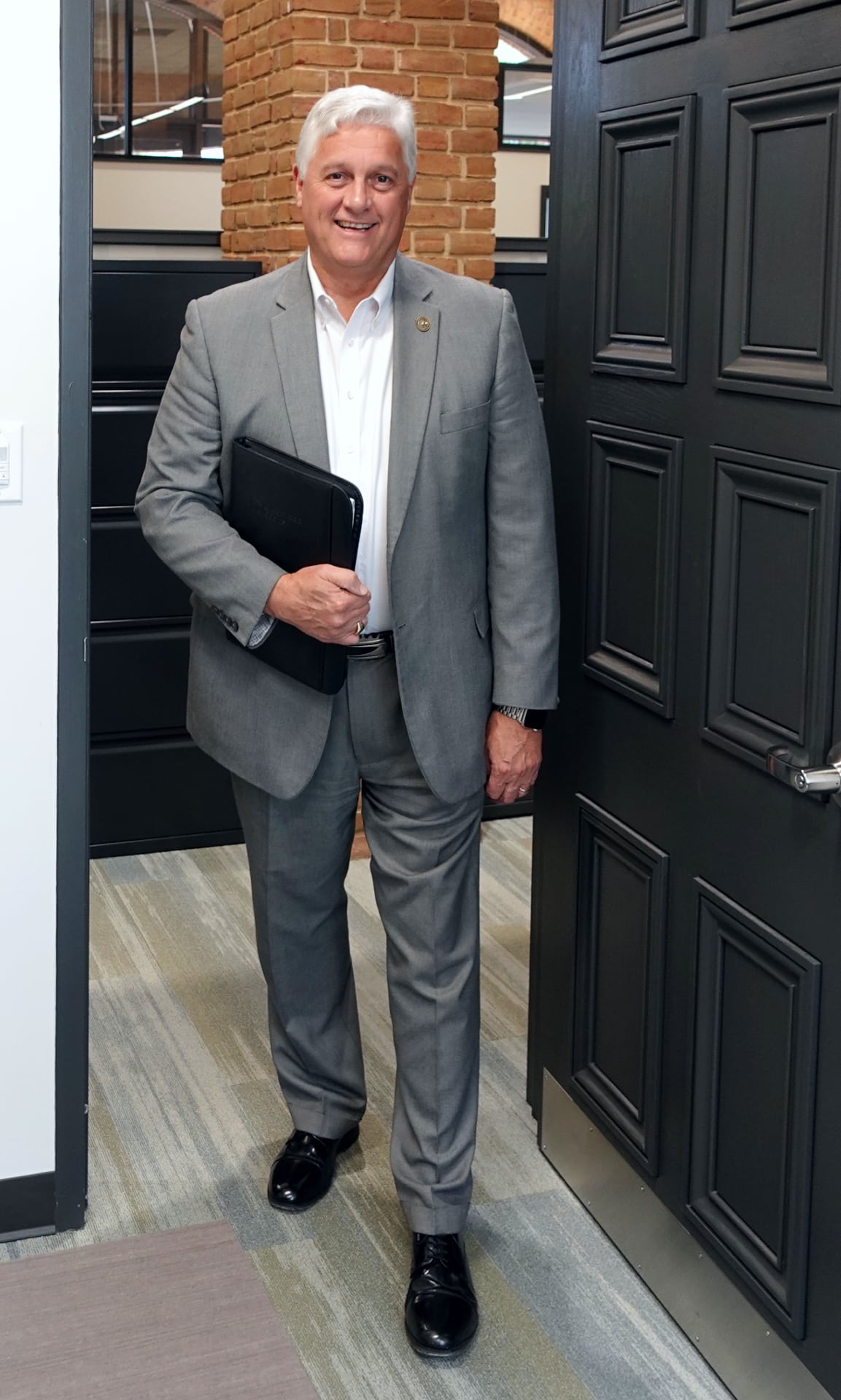
After starting with Greenwood Capital in 2016, John jokes that Greenwood Capital is a “large firm in a small firm’s body.” The investment team matches the depth and consistency of larger investment firms, but John’s clients can still have direct contact with the people making investment decisions. This level of service is non-negotiable for John; he views his work and community as intertwined.
“It’s important for me to work for an organization that does what Greenwood Capital does for their clients. We are client-centric. Even if it sounds kitschy. We really are. It’s a sense of pride for me to say: hey, I’m John Cooper. I’m with Greenwood Capital and we have a great reputation in the community. We’ve been doing this for years and you’re hard-pressed to find someone who has anything negative to say about Greenwood Capital. If they do, I haven’t heard it.”
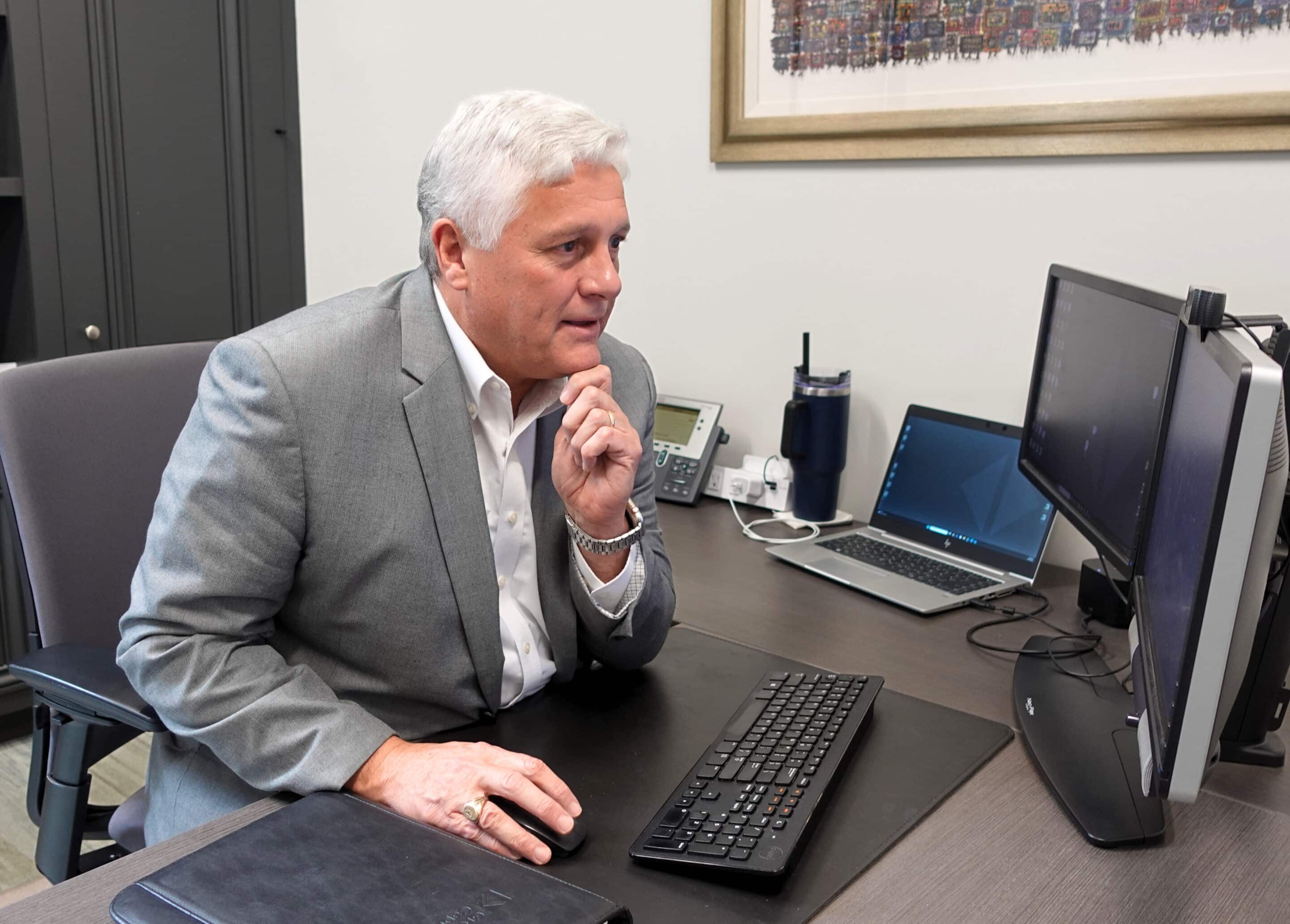
Tragically for Hollywood, but luckily for Greenwood, John Cooper hasn’t appeared in any more feature films. He has instead dedicated his career to building up his community. His efforts have raised funds for hospital equipment, enabled local kids to pursue higher education, and consistently provided his clients with financial peace of mind.
Over the last seven years at Greenwood Capital, John has been doing exactly what he set out to do in that original interview. He has remained connected to his South Carolina roots.
The information contained within has been obtained from sources believed to be reliable but cannot be guaranteed for accuracy. The opinions expressed are subject to change from time to time and do not constitute a recommendation to purchase or sell any security nor to engage in any particular investment strategy. Investment Advisory Services are offered through Greenwood Capital Associates, LLC, an SEC-registered investment advisor.
Excerpts from or links to this article on the Greenwood Capital Insights page have been included in Greenwood Capital social media pages and distributed Greenwood Capital newsletter. As is the nature of social media, the general public is able to post comments and/or “likes” in response to these excerpts and/or links. These comments are unsolicited and are posted by either clients or non-clients, which could be interpreted as client testimonials or public endorsements, respectively, and no cash or non-cash compensation is provided. A conflict of interest could exist related to unsolicited posts as Greenwood Capital and its investment adviser representatives could indirectly benefit from these posts.





